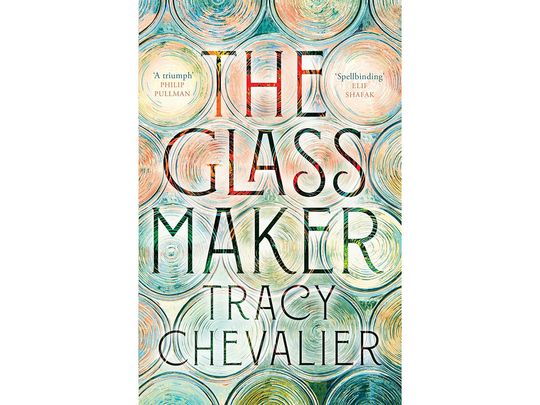
Tracy Chevalier’s The Glass Maker transports readers to 15th-century Venice, where the splendour of trade and glassmaking defines the city’s identity. The story centres on Orsola Rosso, the eldest daughter of a prestigious glassblowing family on the island of Murano.
In this rich historical setting, Chevalier’s portrayal of Orsola’s journey offers an intriguing look into gender roles and familial expectations.
Orsola Rosso’s narrative unfolds in a Venice flourishing with commerce and cultural wealth. Despite the societal constraints of the time, Orsola possesses a rare talent for glassblowing, a craft traditionally dominated by men.
Following her father’s death, she secretly masters the art of bead-making, using her creations to support her family and challenge societal norms.
Murano’s glassmaking traditions
Chevalier’s novel is characterised by meticulous research, seamlessly integrating historical detail with the story. The depiction of Murano’s glassmaking traditions is both informative and engaging, providing insight into a craft that has defined the island’s legacy.
The novel’s setting enriches Orsola’s personal story, grounding her ambitions in a broader cultural and historical context.
However, the narrative features a noticeable disjunction. Despite the central theme of Orsola’s struggle for recognition in a patriarchal society, the novel does not address the seemingly immortal and untroubled existence of the family.
This lack of exploration into the family’s unusual endurance creates a gap in the narrative, affecting the depth of character development.
Overall emotional resonance
The book explores themes of family, tradition, and personal ambition, presenting Orsola’s challenges with realism and empathy. Her determination to assert herself in a restrictive society is portrayed vividly.
Yet, the absence of introspective analysis regarding the family’s enduring nature introduces an element of ambiguity that affects the overall emotional resonance of the story.
Overall, The Glass Maker is a well-researched historical novel that aligns with expectations set by Chevalier’s previous works. While the portrayal of period details and the craft of glassmaking is compelling, the lack of character introspection and the unexplored aspects of the family’s endurance present limitations.
You must read the book for its fabulous exploration of familial duty and personal ambition within a historical framework.
Ahmad Nazir is a UAE based freelance writer






_resources1_16a45059ca3_small.jpg)

